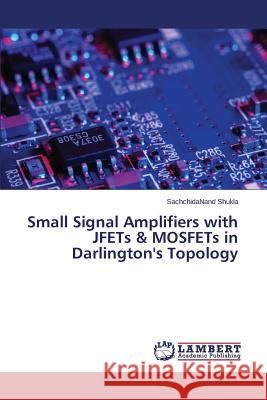Small Signal Amplifiers with JFETs & MOSFETs in Darlington's Topology » książka
Small Signal Amplifiers with JFETs & MOSFETs in Darlington's Topology
ISBN-13: 9783659627835 / Angielski / Miękka / 2014 / 124 str.
Present book is an effort to develop, modify and analyze about 16 different small-signal amplifier circuits, mainly using JFETs and MOSFETs as one of the active components in Darlington pair or Triple Darlington topology. It enlightens a way to Electronics students to implement some new ideas during experimentation with Darlington's topology. Discussed amplifier circuits are simulated with circuit simulation software PSpice and thereafter small-signal AC equivalent analysis is carried out for every design. Proposed amplifiers with suggested biasing norms are found absolutely free from the poor response problem of small-signal conventional Darlington pair or Triple Darlington amplifiers at higher frequencies. Discussions related to the variations in voltage gain as a function of frequency and different biasing resistances, temperature dependency of performance parameters, tuning performance, status of input and output noises and total harmonic distortion of the proposed amplifiers provide a unique set of information and assign them a distinct place in the respective class of small-signal amplifiers.
Present book is an effort to develop, modify and analyze about 16 different small-signal amplifier circuits, mainly using JFETs and MOSFETs as one of the active components in Darlington pair or Triple Darlington topology. It enlightens a way to Electronics students to implement some new ideas during experimentation with Darlingtons topology. Discussed amplifier circuits are simulated with circuit simulation software PSpice and thereafter small-signal AC equivalent analysis is carried out for every design. Proposed amplifiers with suggested biasing norms are found absolutely free from the poor response problem of small-signal conventional Darlington pair or Triple Darlington amplifiers at higher frequencies. Discussions related to the variations in voltage gain as a function of frequency and different biasing resistances, temperature dependency of performance parameters, tuning performance, status of input and output noises and total harmonic distortion of the proposed amplifiers provide a unique set of information and assign them a distinct place in the respective class of small-signal amplifiers.











